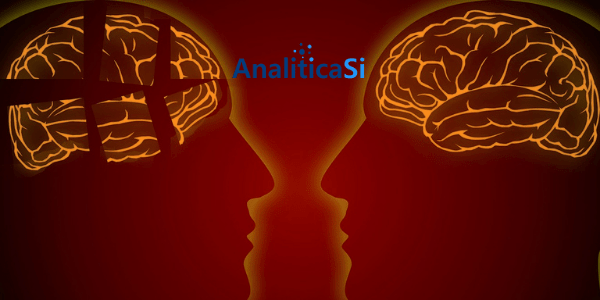Alzheimer’s disease is a progressive neurological disorder that causes the brain to shrink (atrophy) and die of brain cells. Alzheimer’s disease is the most common cause of dementia – a persistent decline in thinking, behavior, and social skills that affects a person’s ability to function independently.
About 5.8 million people 65 years of age and older in the United States suffer from Alzheimer’s disease. Of these, 80 percent are 75 years of age and above. Of the approximately 50 million people with dementia worldwide, between 60% and 70% are estimated to have Alzheimer’s disease.
Early signs of illness include forgetting recent events or interactions. As the disease progresses, a person with Alzheimer’s disease has severely impaired memory and loses the ability to perform daily tasks.
Medicines can temporarily improve symptoms or slow progress. These treatments can sometimes help people with Alzheimer’s disease to maximize function and maintain independence for a period of time. Various programs and services can help people with Alzheimer’s disease and their caregivers.
There is no treatment that cures Alzheimer’s disease or alters the disease process in the brain. In advanced stages of the disease, complications from severe loss of brain function – such as dehydration, Malnutrition or infection – result in death.
Symptoms:
Memory loss is a major symptom of Alzheimer’s disease. Early signs include difficulty remembering recent events or conversations. As the disease progresses, memory weakens and other symptoms develop.
At first, a person with Alzheimer’s disease may be aware of having difficulty remembering things and organizing thoughts. A family member or friend may be more likely to notice how symptoms worsen.
The trouble is increasing because of the brain changes associated with Alzheimer’s disease:
Memory:
Everyone has occasional memory lapses, but the memory loss associated with Alzheimer’s disease persists and worsens, affecting the ability to function at work or at home.
People with Alzheimer’s may:
- Repeat statements and questions over and over
- Forget conversations, appointments or events and don’t remember them later
- Daily Routine misplace possessions
- getting lost in familiar places
- Eventually, the names of family members and everyday objects are forgotten.
- Has trouble finding the right words to identify objects, express ideas, or participate in conversation.
Thinking and reasoning:
Alzheimer’s disease causes difficulty concentrating and thinking, especially about abstract concepts such as numbers.
Multitasking is especially difficult, and managing finances, balancing checkbooks, and paying bills on time can be challenging. Eventually, a person with Alzheimer’s may be unable to recognize and deal with numbers.
Decision making and decision making:
Alzheimer’s disease causes a decline in the ability to make appropriate decisions and make decisions in everyday situations. For example, a person may make poor or unnatural choices in social interactions or wear clothing that is inappropriate for the weather. It may be more difficult to respond effectively to everyday problems, such as food burning on the stove or unexpected driving conditions.
Planning and performing familiar tasks:
Once-routine activities that require gradual steps, such as planning and cooking meals or playing a favorite sport, become a struggle as the disease progresses. After all, people with advanced Alzheimer’s often forget how to perform basic tasks such as dressing and bathing.
Personality and behavior changes:
The brain changes that occur in Alzheimer’s disease can affect mood and behavior. Problems may include the following:
- Depression
- Apathy
- Social withdrawal
- Mood swings
- Distrust in others
- Irritability and aggressiveness
- Changes in sleeping habits
- Wandering
- Loss of inhibitions
- Delusions, such as believing something has been stolen
Preserved skills:
Many important skills are preserved for long periods of time, even when symptoms worsen. Preserved skills may include reading or listening to books, telling and reminiscing stories, singing, listening to music, dancing, drawing, or doing crafts.
These skills may be preserved for a long time because they are controlled by the parts of the brain affected later in the course of the disease.
When to see a doctor:
Many conditions, including treatable conditions, can result in memory loss or other dementia symptoms. If you are concerned about your memory or other thinking skills, speak with your doctor for a thorough evaluation and diagnosis.
If you are concerned about the thinking skills you see in a family member or friend, talk about your concerns and ask about going to the doctor’s appointment together.
Causes
The exact causes of Alzheimer’s disease are not fully understood. But at a basic level, brain proteins fail to function normally, which disrupts the function of brain cells (neurons) and triggers a series of toxic events. Neurons become damaged, lose connection to each other and eventually die.
Scientists believe that for most people, Alzheimer’s disease is caused by a combination of genetic, lifestyle, and environmental factors that affect the brain over time.
In less than 1% of the time, Alzheimer’s is caused by specific genetic changes that virtually guarantee that the person will develop the disease. These rare events usually result in disease onset in middle age.
The damage often begins in the area of the brain that controls memory, but the process begins years before the first symptoms. The loss of neurons spreads to other areas of the brain in a somewhat predictable pattern. By the late stage of the disease, the brain has shrunk significantly.
Risk:
Ages
Increasing age is the biggest known risk factor for Alzheimer’s disease. Alzheimer’s is not a part of normal aging, but your chances of developing Alzheimer’s disease increase as you get older.
For example, one study found that there were four new diagnoses per 1,000 people aged 65 to 74 years, 32 new diagnoses per 1,000 people aged 75 to 84 years, and one per 1,000 people aged 85 and older. There were 76 new diagnoses per 1,000 people.
If your parents or siblings have the disease, you have a slightly higher risk of developing Alzheimer’s. Most of the genetic mechanisms of Alzheimer’s between families remain largely unclear, and genetic factors are potentially complex.
Scientists have identified rare mutations (mutations) in three genes that virtually guarantee that a person inheriting one of them will develop Alzheimer’s. But these mutations account for less than 1% of people with Alzheimer’s disease.
Gender
There appears to be a slight difference in risk between men and women, but overall, women are more prone to the disease because they generally live longer than men.


One response